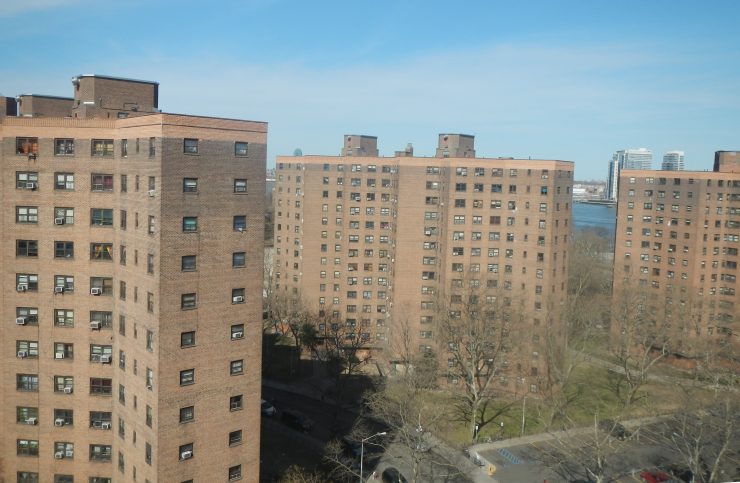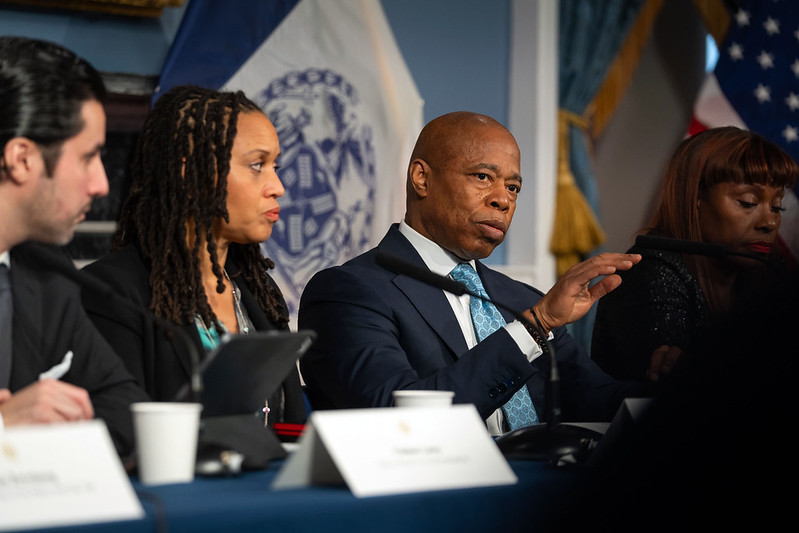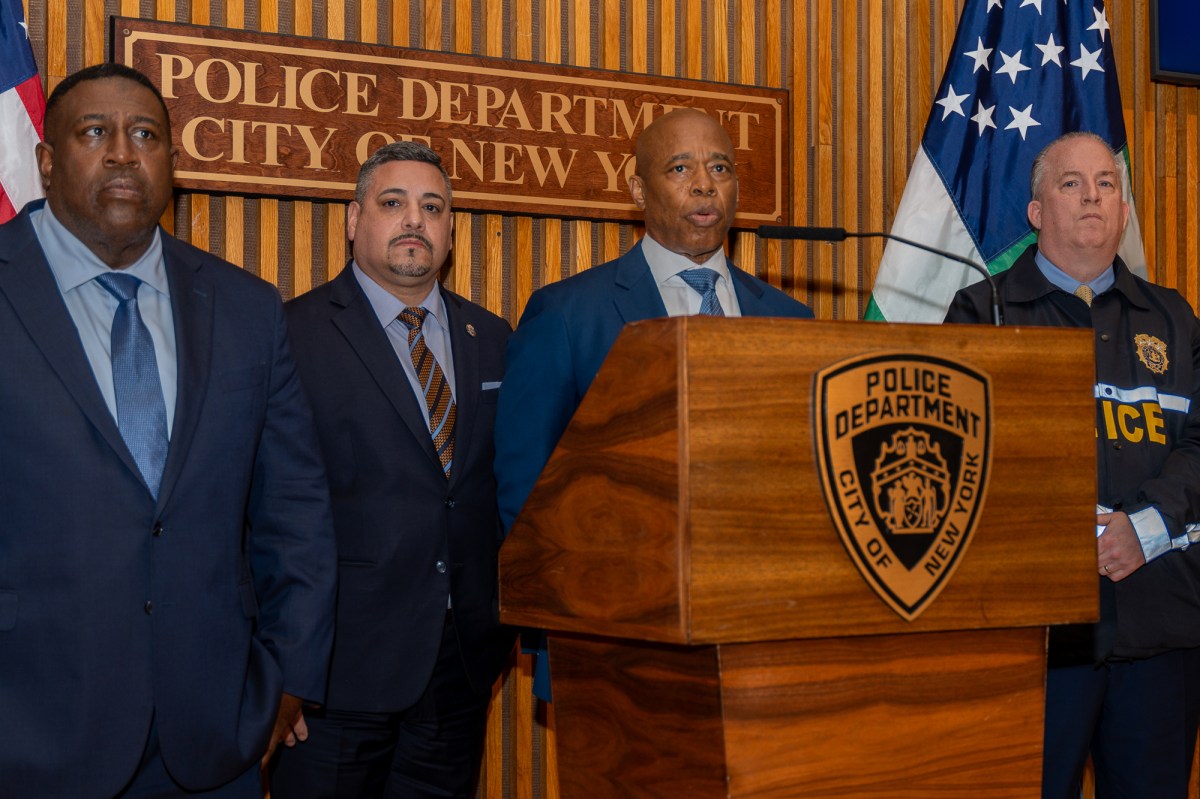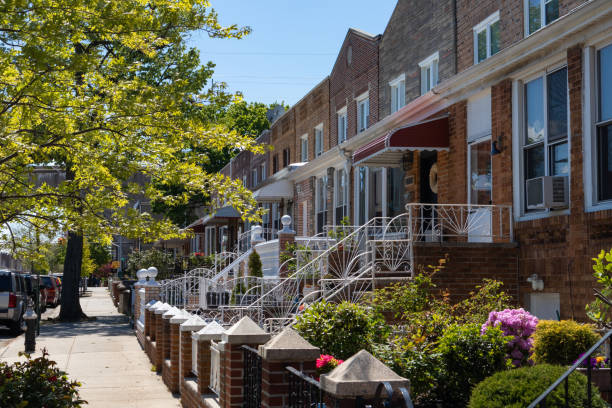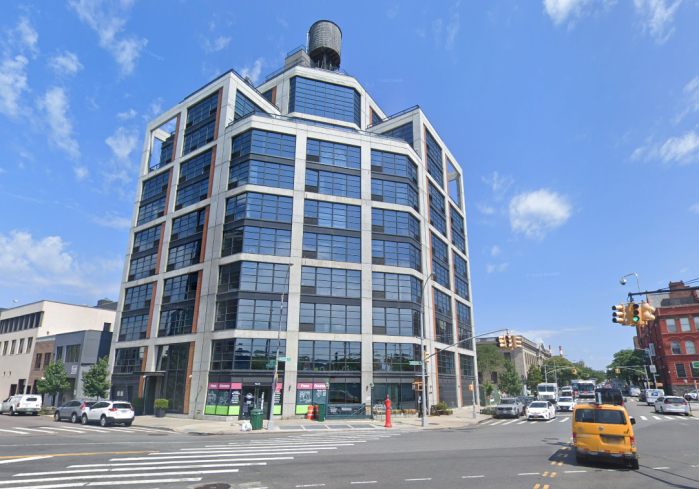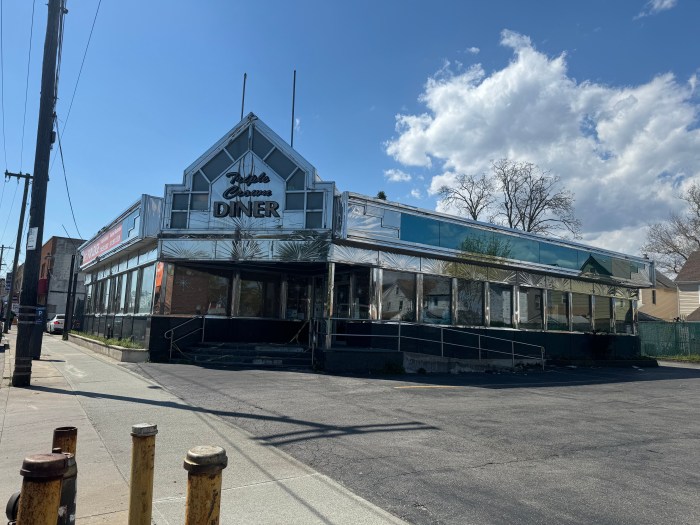The pipes are calling for help for New York City’s aging public housing buildings, according to one local union.
Representatives of Steamfitters Local 638 revealed a report to amNewYork which indicates that rotting pipes are the root cause of systemic problems experienced by the majority of NYCHA residents — including leaks, mold and heat outages.
On top of that, the steamfitters union says the sprinkler systems may also be compromised by aging pipes, placing the lives of NYCHA tenants in danger in the case of fire.
No other improvement made to NYCHA buildings constructed between 1945 and 1965 will matter, according to the union, if the pipes aren’t replaced.
While NYCHA is set to spend $600 million on new boilers, the Steamfitters say this will be ultimately fail if the pipes are not addressed.
“While they were built exceptionally well, the pipes hidden inside the plaster and sheetrock walls and ceilings have already surpassed their half-a-century long lifespan,” said Patrick Dolan, the union’s president. “Unless these pipes are replaced, expect these conditions to only worsen … a building operating system is comparable to the heart, lungs and arteries of a human body. Upon reaching the age of 55 to 75 — much like veins and arteries leading to a human heart or lungs — the insides of pipes have long ago calcified and clogged, leading to blockages and ruptures.”
One way in which the union said old pipes become compromised over time is due to build-up that blocks the flow of water, much like a clotted artery; and the problems described by the Steamfitters are not inconsistent with other reports.
But a spokeswoman for NYCHA said the understanding about infrastructure was nothing new to the agency, and that they have made strides in recent months to improve conditions through preventative maintenance.
“Local 638 doesn’t represent NYCHA staff. However, our union, frontline and management staff throughout the Authority know first-hand that unplanned heating outages and other infrastructure deficiencies are symptomatic of decades of financial disinvestment in our aging buildings, and for the past year, in collaboration with the federal monitor, we have already implemented the Mold Busters program and the heat action plan, which are demonstrating real progress in terms of reducing mold, and speeding up repairs and restoring heat for residents,” the spokesperson told amNewYork. “This year NYCHA invested millions in City funds to upgrade heating equipment and for preventative maintenance, and we are on schedule to invest $450 million in State funds to replace aging heating systems across the portfolio, and other infrastructure, beginning 2020.”
Referring to a March 2018 study completed by the now defunct Independent Democratic Conference, the union illustrated the prevalence of pipe problems with statistics claiming that 59 percent of NYCHA residents have had problems with mold while 52 percent have or had leaking roofs, windows or pipes.
In March 2019, the federal government was gearing up to appoint a federal monitor to oversee NYCHA and bring living conditions to a higher standard.
Federal housing official Lynne Patton led a town hall that same month with residents of Queensbridge Houses, the largest public housing complex in the nation, complaining of leaks causing damage to walls and ceilings.
In one instance, pipes were so old and corroded maintenance workers said they fell apart in their hands.
Congresswoman Nydia Velazquez, in September, introduced the Public Housing Response Act which attempts to provide major federal funds for public housing nationwide.
Up to $70 billion would be slated for public housing in total while $36 billion would be reserved just for NYCHA.
The bill was referred to the House Committee on Financial Services where it has not advanced in the process of getting a vote on the floor.
Under the bill, NYCHA would not be awarded the funds directly, but would go to the U.S. Department of Housing and Urban Development.

